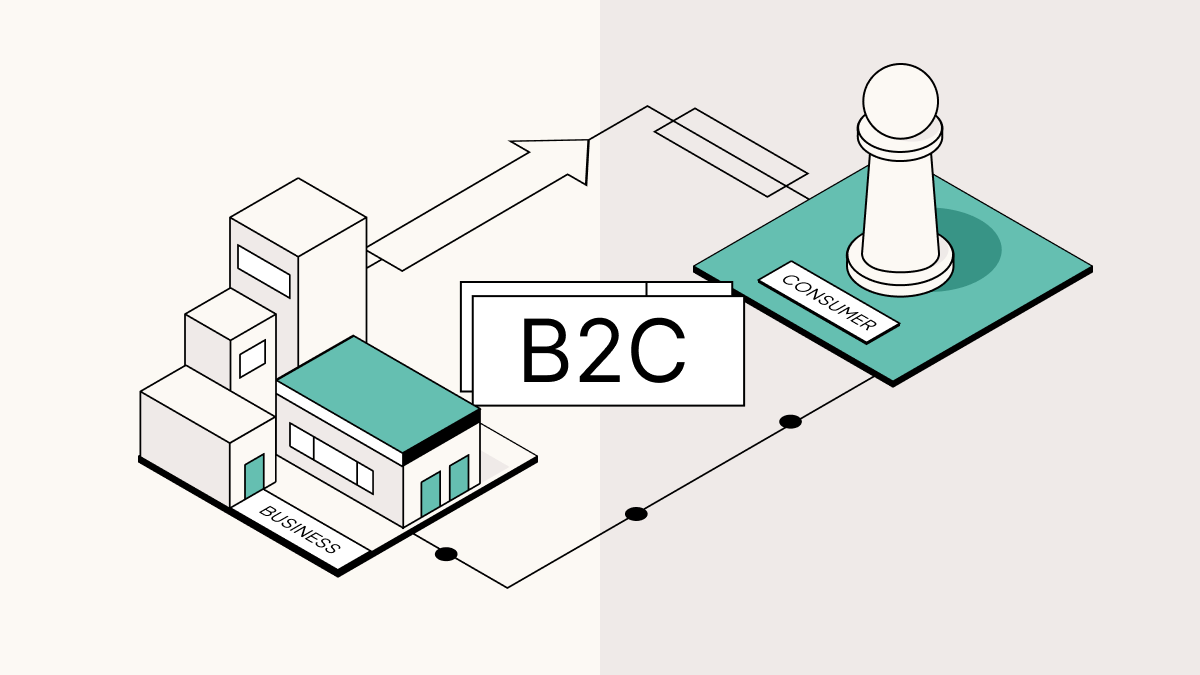What is B2C?
B2C, which stands for “business-to-consumer,” is one of several business models a startup can choose, depending on whether its target customers are individual customers or other businesses.
Business-to-consumer (B2C) is a type of e-commerce business model in which individual consumers buy goods or services directly from a company. This differs from the business-to-business (B2B) model, which typically involves sales and exchanges between two companies.
In this article, we’ll explore what the B2C business model is, how it differs from B2B, and the advantages it can offer to your business and consumers. We’ll also look at some successful examples of B2C companies and how they use pricing strategies and B2C marketing to reach their target audiences.
B2C vs. B2B
B2C companies target individuals as their audience, while B2B businesses target other businesses.
|
B2C company |
B2B company | |
|
Target audience |
Individuals |
Businesses |
|
Example |
Nike: Sells sporting goods and apparel to individuals. |
Salesforce: Provides customer relationship management software to businesses. |
Advantages of B2C
The B2C model allows businesses to connect with customers directly, while gaining data that can help shape future marketing and pricing strategies.
Customer autonomy
B2C companies can offer more transparency by allowing their customers to purchase items without having to go through a third party.
Speed
B2C businesses often have a direct line of communication to their customers. Companies can use this access to introduce new products or services quickly, and adapt based on customer trends.
Customer service
B2C companies can create loyalty by quickly responding to customer issues and providing personalized customer experiences. This leads to repeat purchases and more profits.
Data access
B2C transactions provide valuable insights into consumer behavior. By understanding customer preferences and needs, companies can create more effective marketing campaigns.
Examples of B2C companies
Online retailers like Amazon and Walmart are well-known B2C players, but traditional brick-and-mortar businesses—banks, hotels, and airlines—adopt a B2C model, too.
Using mobile banking apps, banks give customers easy access to their finances and wealth management. Bank of America, Wells Fargo, and other banks often run TV commercials, radio ads, billboards, newspaper ads, and search engine optimization (SEO) techniques to reach potential customers directly.
Hotels and airlines use loyalty programs and discounts to attract new customers and retain existing ones. Social media marketing strategies, including influencer campaigns and sponsored content, are common for companies like Hilton or Delta. Hotels can also partner with travel sites like Expedia to reach budget travelers and fill empty rooms.




